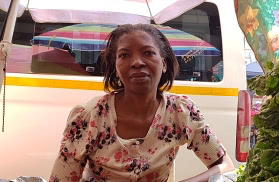Because it often takes litigation to get city authorities to protect informal traders’ rights, the Socio-Economic Rights Institute of South Africa (SERI) represented a group of street traders under threat of an interdict that would have resulted in a total ban on trade in parts of central Johannesburg.
Filed opposing papers on behalf of the traders included photographs to prove to the court that all health and safety regulations were being followed by the traders. They wear masks, use hand sanitizers and observe the social distancing protocols, said SERI candidate attorney Nerishka Singh.
The traders, who are members of the South African Informal Traders Forum (SAITF) and the African Traders Organization (ATO), understand the threat of the virus “along with everyone else” and are doing “all they can to mitigate the risk, and were doing so long before the case was brought,” she said. “Essentially, they are being punished for their poverty. And for trying to make a living.”
With partners StreetNet International, Asiye eTafuleni (AeT), SERI and UCT's African Centre for Cities, WIEGO has published guidelines for informal traders in South Africa. The multi-language guidelines provide COVID-19 health, rights and financial support information to workers in markets, streets and spaza shops. They update earlier health guidelines and have been adapted for traders in Namibia. They will soon be available in versions suitable for local contexts in other countries and in more languages.
